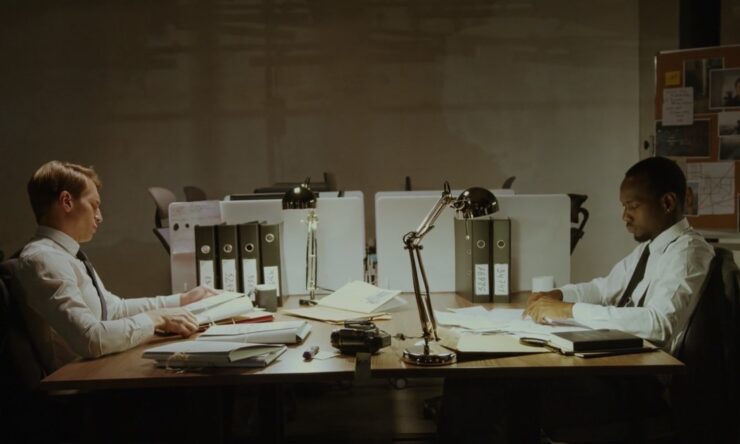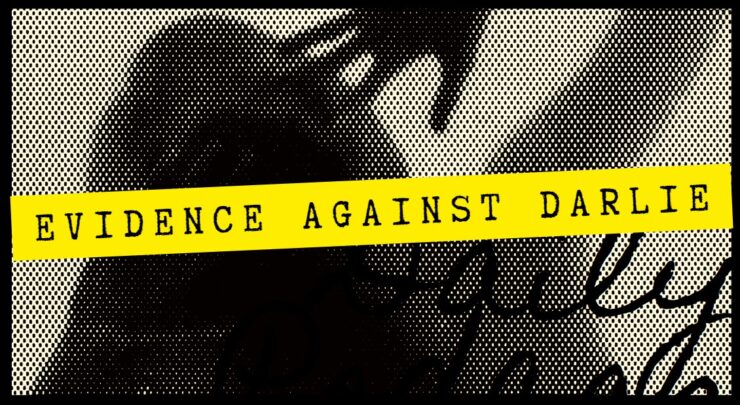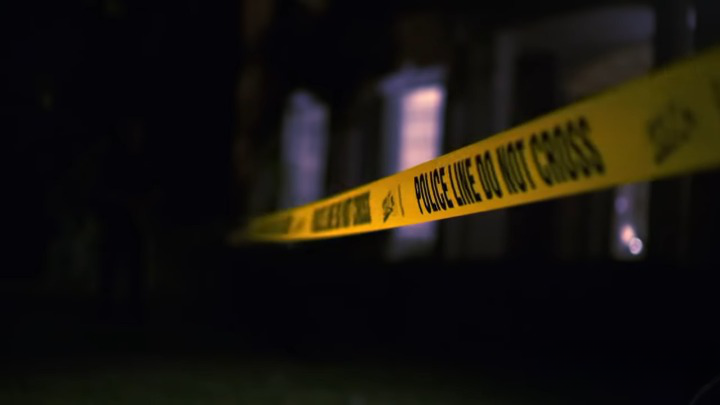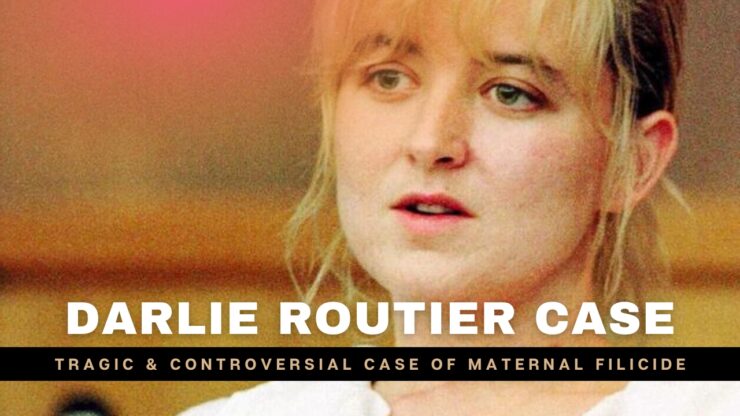The Darlie Routier case is a well-known and controversial case of maternal filicide that took place in Texas in 1996. It involves the murder of two of Darlie’s sons, Damon and Devon, while they were sleeping in their home.
Darlie, who was also attacked and wounded during the incident, was eventually convicted of their murder and sentenced to death. However, the case has been the subject of much debate and speculation, with many people questioning Darlie’s guilt and the fairness of her trial.
In this blog post, we will examine the facts of the case, the evidence presented, and the various theories and controversies that have emerged over the years.
Background and Initial Investigation

On June 6, 1996, Darlie Routier called 911 and reported that an intruder had broken into her home and attacked her and her two sons, Damon and Devon. When police arrived, they found Darlie with a knife wound to her throat and her two sons dead from multiple stab wounds. Her husband, Darin, and their youngest son, Drake, were also in the house at the time of the attack but were unharmed.
Police immediately began an investigation into the crime scene, and suspicion quickly turned to Darlie. There were no signs of forced entry, and the evidence suggested that the attacker had come from inside the house.
In addition, her behavior at the hospital, where she was treated for her injuries, was seen as suspicious. She appeared to be more concerned with her appearance and the media attention she was receiving than with the deaths of her children.
The Evidence Against Darlie

The prosecution presented a variety of evidence against Darlie during her trial, much of which was circumstantial but still seemed to paint a damning picture. One of the most compelling pieces of evidence was the blood spatter analysis conducted at the scene.
The patterns of blood on the walls and floors suggested that the attacker had been standing near the couch where Devon and Damon were sleeping and that their wounds had been inflicted from a downward angle, consistent with someone standing over them.
Another piece of evidence that pointed to Darlie’s guilt was the testimony of a hair and fiber expert, who claimed that fibers found on a knife recovered from the scene matched fibers from a nightshirt she had been wearing. In addition, a bloody fingerprint found on a coffee table in the living room was identified as belonging to her.
Finally, Darlie’s behavior after the attack was seen as incriminating. She did not appear to be grieving or even particularly upset about the deaths of her children, and she made several comments that seemed odd or inconsistent with someone who had just lost their children to a violent attack. For example, she referred to the attacker as a “silly goofball” and commented that she hoped they caught him soon so that she could get a good night’s sleep.
The Defense’s Case
Despite the strong evidence presented by the prosecution, Darlie’s defense team argued that she was innocent and that the evidence had been misinterpreted or mishandled by investigators. They pointed to the fact that there was no clear motive for Darlie to kill her own children and that she had no history of violent behavior or mental illness.
The defense also challenged the blood spatter analysis, arguing that it was based on flawed science and that the patterns of blood could have been caused by other factors, such as the movement of the bodies or the application of CPR.
They also suggested that the hair and fiber evidence was unreliable and that the fingerprint found on the coffee table could have been left there at a different time.
Finally, the defense argued that Darlie’s behavior after the attack was not evidence of guilt but rather a normal response to a traumatic event. They pointed out that people can react differently to tragedy and that grief can manifest in different ways.
Controversies and Theories
Despite the conviction and death sentence, the Darlie Routier case has been the subject of much debate and controversy over the years. Many people believe that she was wrongly convicted and that there is not enough evidence to support the prosecution’s case.
Others suggest that Darlie may have been the victim of a rush to judgment and that the investigation and trial were biased against her.
One theory that has emerged is that an unknown intruder was responsible for the murders. Supporters of this theory point to the lack of a clear motive for Darlie to kill her own children, as well as the fact that no physical evidence directly links her to the crime.
They suggest that the intruder may have entered the home through an unlocked door or window and that Darlie may have been attacked while trying to protect her children.
Another theory is that Darin, Darlie’s husband, may have been involved in the murders. Supporters of this theory point to Darin’s suspicious behavior before and after the attack, as well as the fact that he stood to gain financially from the deaths of his children. They suggest that Darin may have hired someone to carry out the attack or even carried it out himself.

The Fairness of the Trial
One of the biggest controversies surrounding the Darlie Routier case is the fairness of her trial. Critics argue that the prosecution was biased against her and that her defense team was not provided with adequate resources to mount a proper defense. They suggest that the trial was rushed and that important evidence was ignored or mishandled.
In addition, many people have raised concerns about the use of the death penalty in the case. They argue that Darlie’s mental state was not properly taken into account and that the death penalty is an overly harsh punishment for a crime that may not have been committed by her in the first place.
Final Words
The Darlie Routier case is a tragic and controversial case of maternal filicide that has captivated the public for decades. While Darlie was convicted of the murders of her two sons, there are many who continue to question her guilt and the fairness of her trial.
The case has been the subject of much debate and speculation, with various theories emerging over the years. Despite the controversies surrounding the case, it remains a stark reminder of the devastating consequences of family violence and the need for justice and accountability in such cases.
Stay updated by visiting fordarlieroutier.org and reading more about this kind of tragic events.

